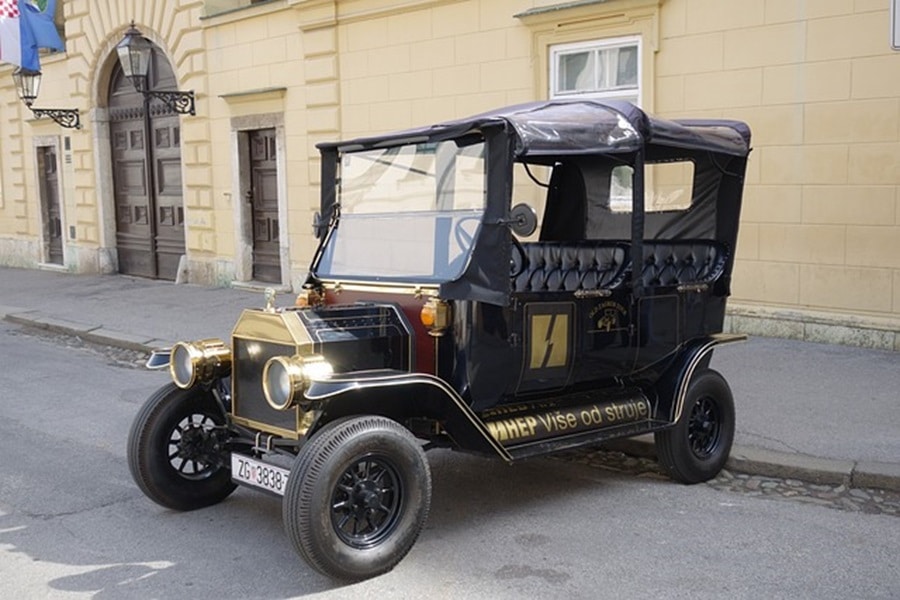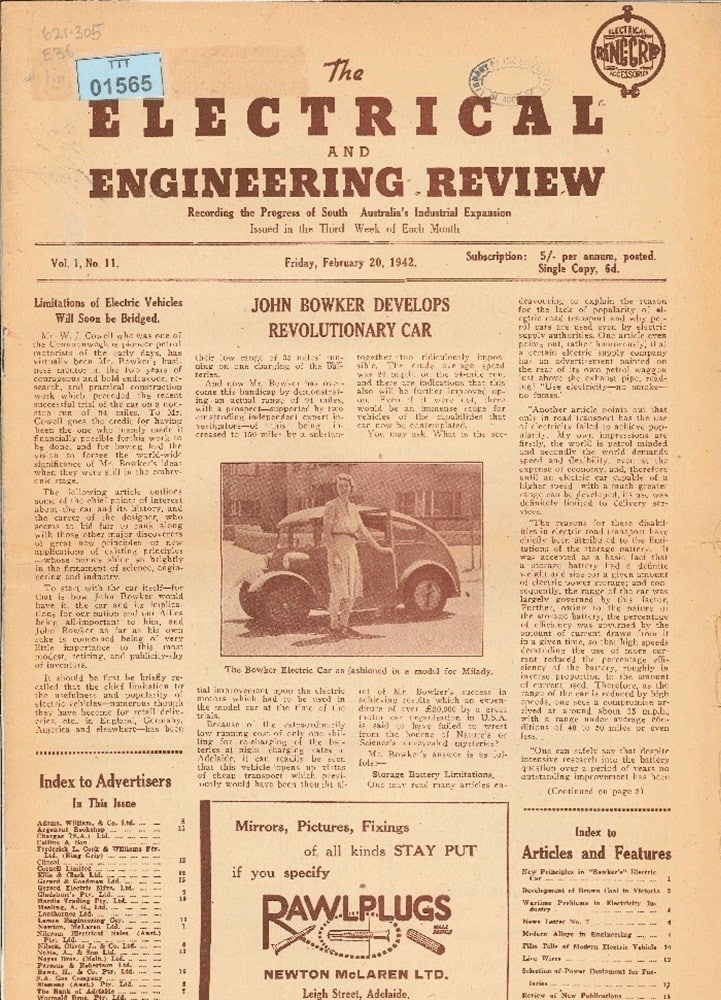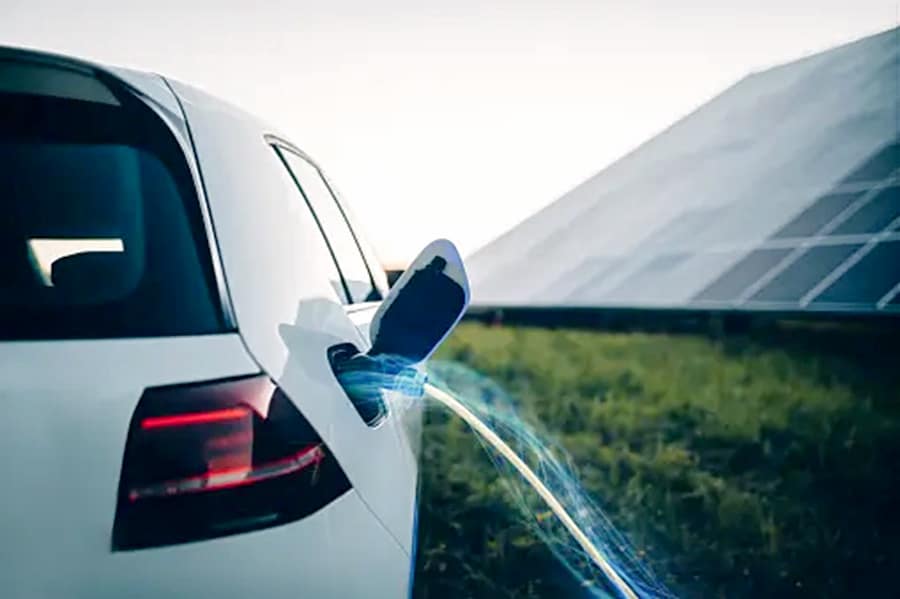Electric cars are often seen as a recent innovation driven by the need to reduce greenhouse petrol emissions and dependence on fossil fuels. However, electric cars have a long and fascinating history, dating back to the 19th century. This article will explore the history of electric cars in Australia, from the first electric car to the current and future developments.
Are you ready to convert your next car to an electric vehicle (EV)? Book a test drive now in one of the newest electric vehicles in your location!
The first electric car
The first electric car was not invented in Australia but in Europe. In 1828, a Hungarian priest and physicist named Ányos Jedlik created a small model car powered by an electric motor. In 1835, a Dutch professor named Sibrandus Stratingh built a similar vehicle, but larger and capable of carrying passengers. In 1884, an English inventor, Thomas Parker, built the first production electric car, using rechargeable batteries that he also invented. Parker’s electric car was more practical and efficient than the steam-powered and petrol-powered vehicles of the time.
However, Sydney engineer Henry Sutton created Australia’s first electric automobile in 1899. Sutton’s three-wheeled electric vehicle had a top speed of 16 km/h and could cover 40 km on a single charge. Sutton’s electric car was also the first to use a steering wheel, instead of a tiller or a lever, to control the direction. Sutton’s electric car was remarkable, considering Australia had few roads and a limited electricity supply.
Are you ready to embrace a greener future by installing an electric vehicle (EV) charger? Imagine the convenience of having your own charging station, allowing you to power up your EV whenever it’s convenient for you. By adding an electric vehicle charger to your house or place of business, you can fight climate change and promote a cleaner environment. The trusted local installers of Energy Matters are ready to deliver you a personalised price tailored to your specific needs.
Don’t wait any longer; request your quote today and be part of the EV charging revolution!

The rise and fall of electric cars
Electric cars were common and widely used in the early 20th century, particularly in urban. Electric cars had many advantages over their competitors: they were quiet, clean, easy to operate, and cheap to maintain. Electric cars also had a higher range and speed than steam cars and did not require manual cranking or fueling like petrol cars.
Women especially favoured electric cars, which were more comfortable and convenient than other vehicles. Electric cars also had a significant presence in Australia, using them for various purposes, such as taxis, delivery vans, buses, and trams.

In 1906, the first electric taxi service was launched in Melbourne, followed by Sydney in 1910. Electric taxis were popular among customers, who appreciated their smooth and silent ride. Electric delivery vans were also common, especially for businesses transporting perishable goods like milk, ice, and meat. Electric buses and trams were also widely used in Australian cities, providing public transportation for millions of people.
However, electric cars faced several challenges that eventually led to their decline. One of the main challenges was the need for more standardisation and infrastructure for electric cars. Electric cars used different types of batteries, voltages, and connectors, which made them incompatible with each other and the available charging stations. The low availability and unreliability of electricity, particularly in rural regions, was another problem for electric cars.
Electric cars also had a lower range and speed than petrol cars, which became more affordable and efficient with the mass production of the Ford Model T in 1908 and the discovery of oil in Australia in 1924. By the 1930s, electric cars had almost disappeared from the Australian roads, replaced by petrol cars that dominated the market.
The revival of electric cars
Electric cars remained a niche and experimental technology for several decades until the environmental and energy crises of the 1970s and 1980s sparked a renewed interest in alternative fuels and vehicles.
Electric cars were seen as a potential solution to reduce air pollution, greenhouse petrol emissions, and oil dependence. Several countries, including Australia, have invested in the research and development of electric cars and incentives and regulations to promote their adoption.
The Australian government funded an electric automobile conversion project in 1974 that resulted in a Ford Cortina with a 100 km/h range and a maximum speed of 80 km/h. The first Australian-made electric vehicle, the Elcar, was created in 1980 by Elcar Corporation and had a 60 km/h range and a maximum speed of 65 km/h. In 1983, the Australian Electric Vehicle Association was formed, to advocate and educate for electric vehicles in Australia.
However, electric cars still face many barriers, such as high costs, low performance, limited availability, and consumer resistance. Electric cars also had to compete with other alternative fuels and vehicles, such as natural petroleum, ethanol, hydrogen, and hybrids. Electric cars did not achieve significant market penetration or public acceptance in Australia or most of the world until the 21st century.
The current and future developments of electric cars
The 21st century has witnessed remarkable growth and innovation of electric cars, driven by technological advances, environmental concerns, and policy support. Electric cars have improved significantly in range, speed, efficiency, safety, and design, thanks to new battery technologies, such as lithium-ion and solid-state, and new electric motor technologies, such as induction and permanent magnet.
Electric cars have also become more affordable and accessible, thanks to various manufacturers’ economies of scale, mass production, and competition, such as Tesla, Nissan, Toyota, Renault, Mitsubishi, and Volvo.

Electric cars have also gained more popularity and recognition, thanks to the efforts of various stakeholders, such as governments, industry, media, and consumers. Governments have put several policies and programmes to expedite and promote the adoption of electric vehicles.
These include infrastructure, regulations, tax incentives, and subsidies. The industry has invested in research and development, marketing, and distribution of electric cars and collaboration and partnerships with other sectors, such as energy, transportation, and communication. Read more about Electric Vehicles EV Rebates and Incentives Australia.
Australia has also witnessed a significant increase and improvement in electric cars in recent years, although it still lags behind other countries regarding market share and policy support.
According to sales data from the Electric Vehicle Council, 46,624 EVs were sold in Australia in the first half of 2023—more than three times as many as in 2022 (a 269% increase). When considering the total quantity sold, new electric vehicles (EVs) now account for 8.4% of all new automobile sales in Australia. This is a 120.5% rise over 2022 as a whole.
Sources: The history of electric cars in Australia | Electric Vehicles – NRMA, The history of electric cars – CarsGuide, The history and future of electric vehicles | RACV, Electric Cars In Australia: A History – OsVehicle, Electric cars in the history of Volvo Cars, Electric Taxis in Australia | Australian Electric Vehicle Association, The History of the Car in Australia | Budget Direct
The future looks even brighter with solar energy
The history of electric cars in Australia reflects the global evolution of electric vehicle technology. Australia has witnessed a remarkable journey, from the first electric car in the 19th century to the modern electric cars dominating the market today.
More affordable EVs are hitting the market, fueled by government incentives and a growing appetite for sustainable driving. The future looks even brighter, with innovations like solar panel integration and advancements in battery storage promising extended range and lower energy costs. This, coupled with an expanding charging network, could see electric cars become the norm in Aussie driveways sooner than we think.
Ready to upgrade your solar panels and take your energy savings to the next level? Embrace the energy efficiency revolution by upgrading your solar panels, battery or solar inverters with Energy Matters.
With our 3 free solar quotes, you can compare plans from pre-qualified and vetted installers in your area and find the perfect solution for your home and business. Harness the sun’s power and save money on electricity bills while reducing environmental impact. Let Energy Matters guide you towards a brighter, more sustainable future.













































